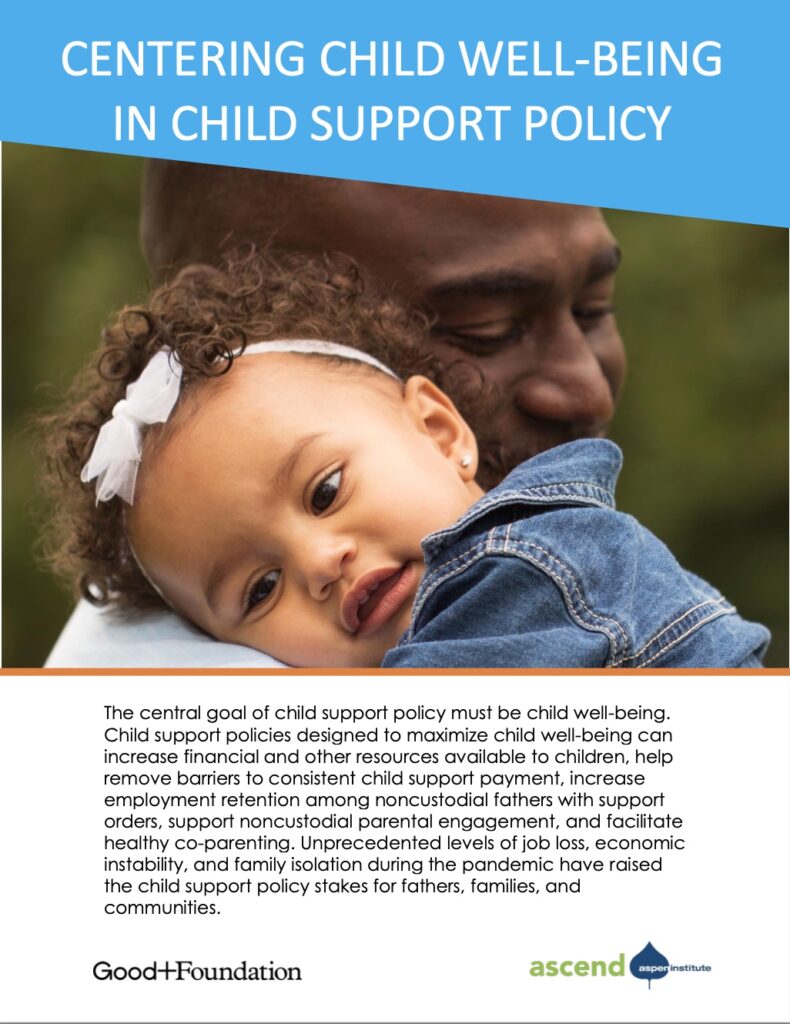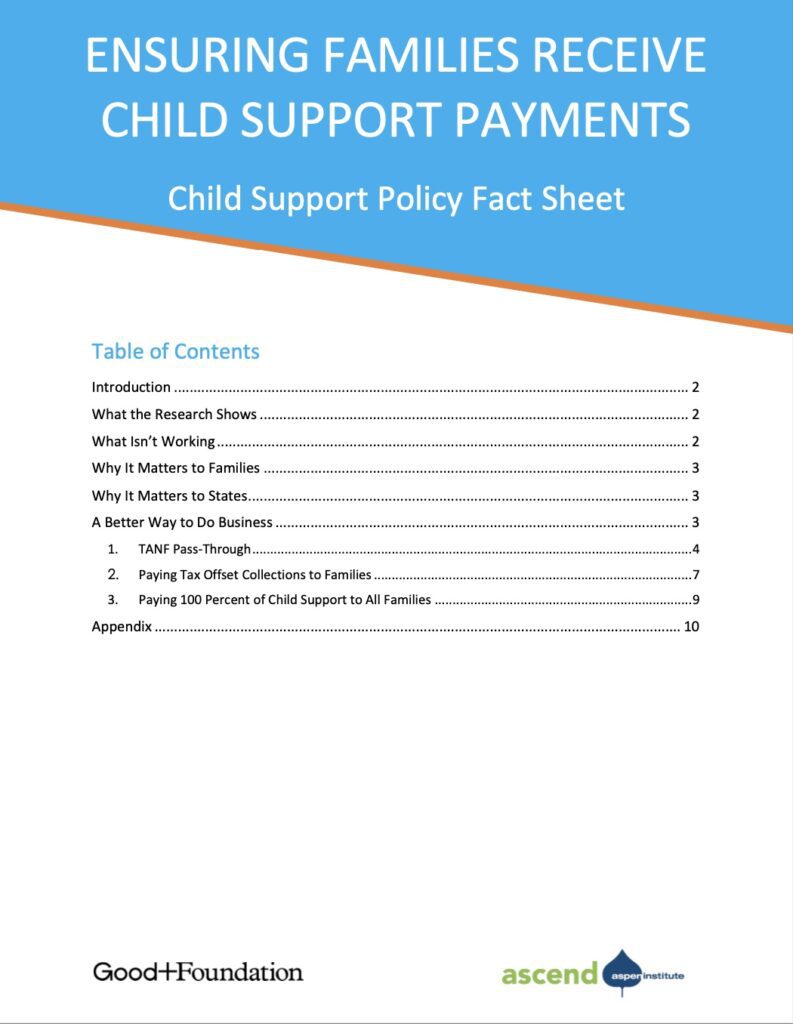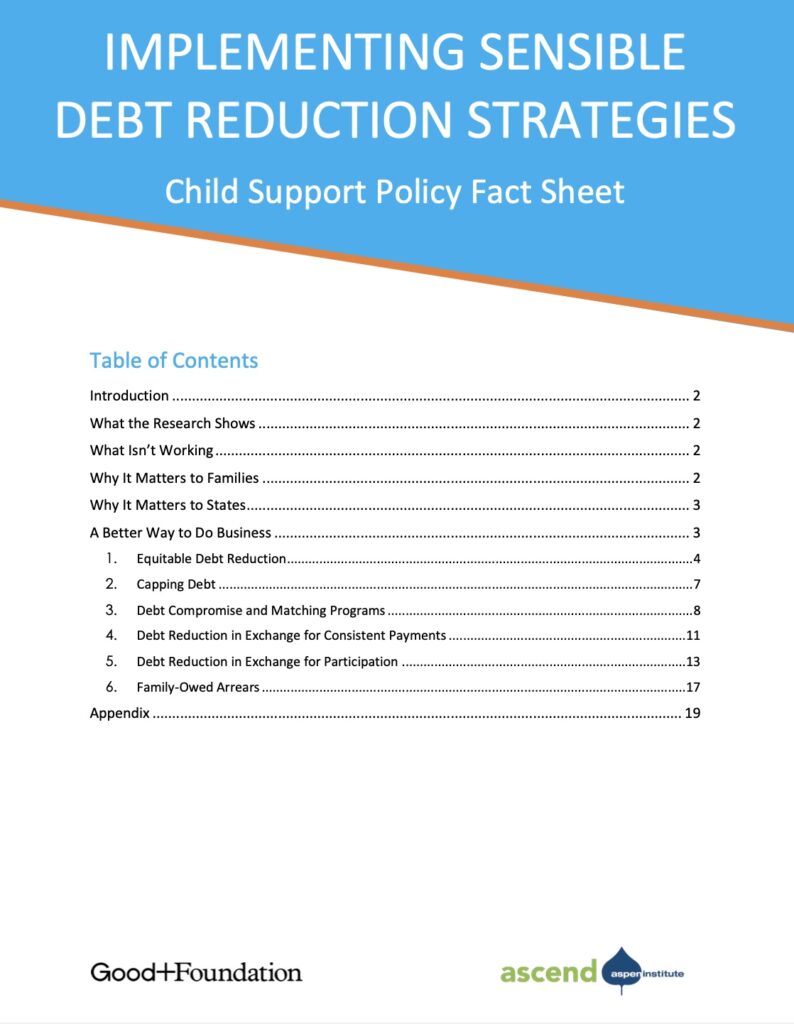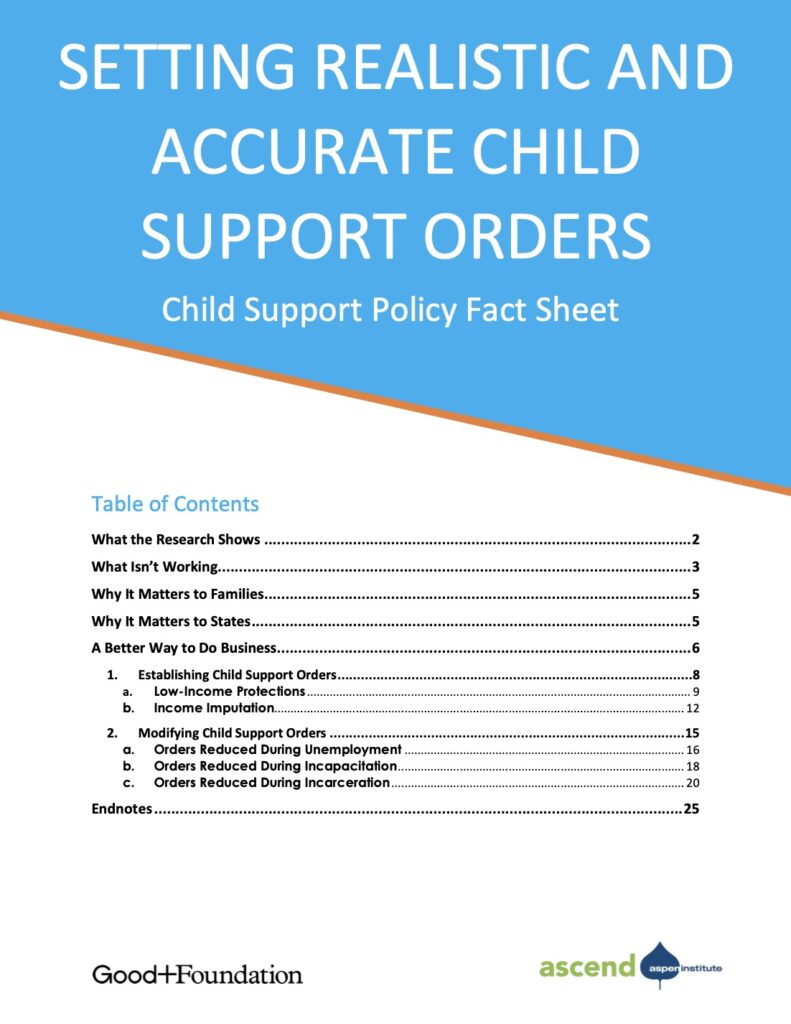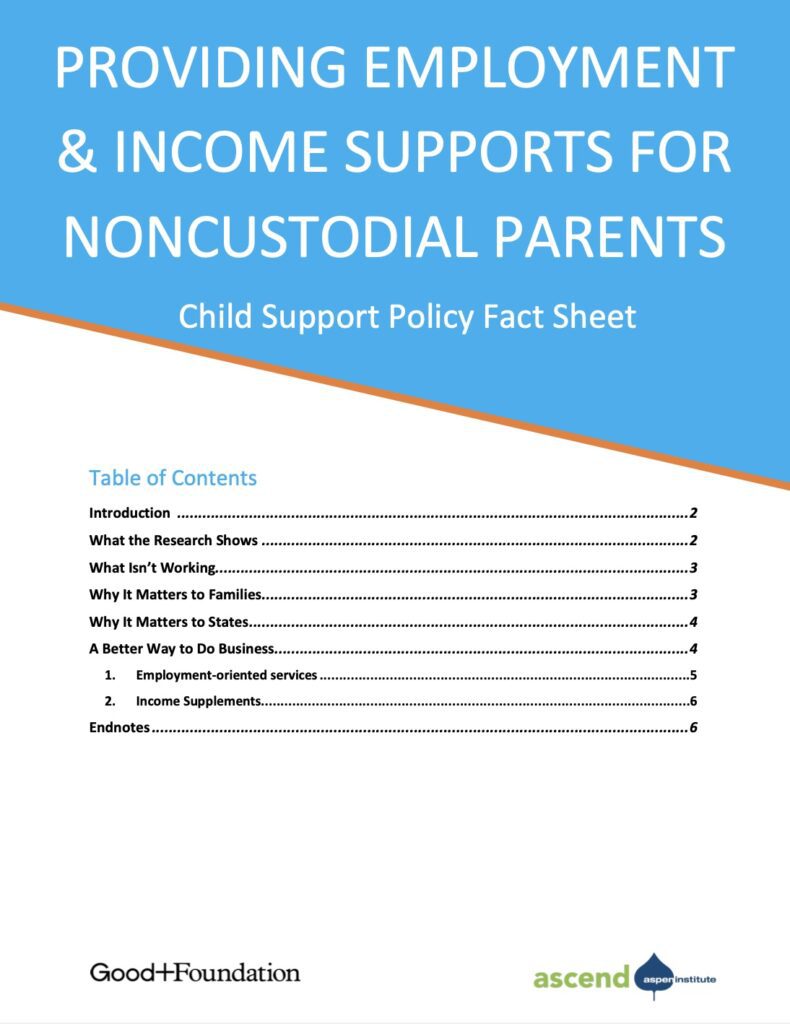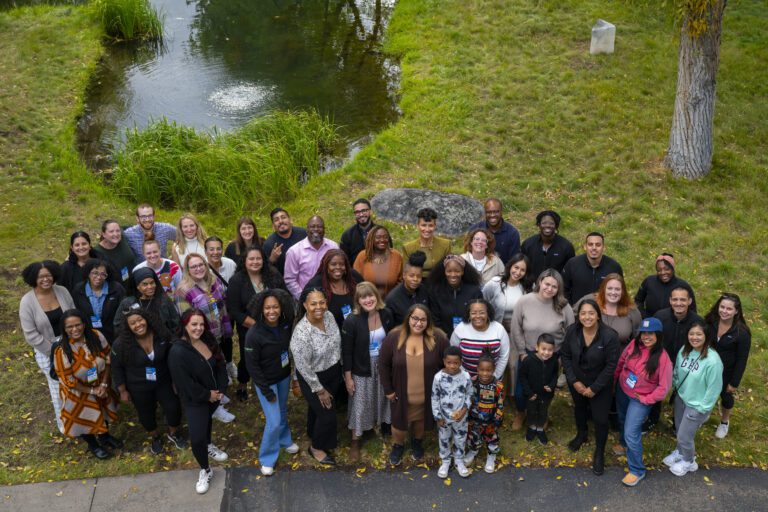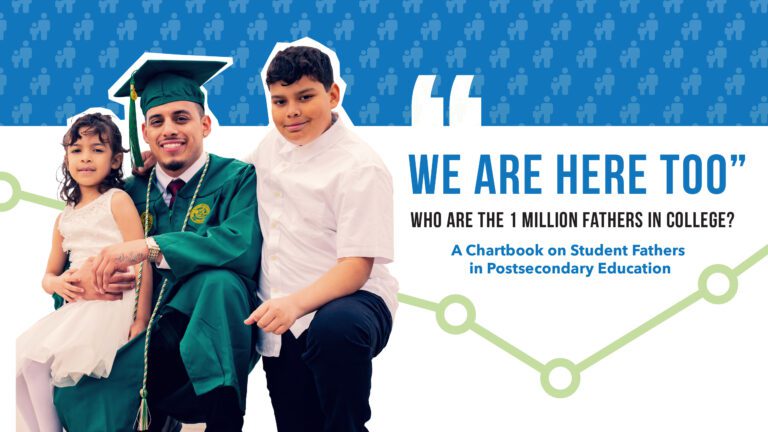An Evidence-Based Approach to Child Support
Elevated inflation and economic uncertainty make strong and equitable child support policy imperative for the well-being of fathers, families, and communities. Through careful and rigorous research, we know that there is a better way to approach child support policy to build strong families and communities.
Across the country – states, counties, and tribes have embraced the research and are modernizing their child support programs through holistic, family-centered policies and practices that build partnerships with parents instead of adversarial relationships. They go beyond collecting money to address underlying reasons for nonpayment, ensure that children benefit from payments, and facilitate effective co-parenting. Family-centered child support policies put children where they belong: at the center of child support policymaking.
The below Centering Child Well-Being in Child Support Policy toolkit, developed in partnership with Good+ Foundation, features new analysis of state child support director survey data. We found that many states are moving to adopt more pragmatic and family-centered child support policies, including the following innovations:
The central goal of child support policy must be child well-being. Child support policies designed to maximize child well-being can increase financial and other resources available to children, remove barriers to consistent child support payment, increase employment retention among noncustodial fathers with support orders, support noncustodial parental engagement, and facilitate healthy co-parenting.
Putting child support dollars in families’ hands results in more income for families and helps them cover essentials like children’s food, clothes, and school supplies. States can direct that money to families at home, rather than to the federal government. Family pass-through and distribution policies incentivize noncustodial fathers to pay through the formal child support program and can increase federal incentive payments by improving child support program performance.
Reducing state-owed debt can increase employment and child support payments, reduce time spent on futile collection efforts, and increase federal performance incentive payments. Almost all states have policies that allow noncustodial fathers to seek a reduction of state-owed debt, either on a case- by-case basis or as part of a debt reduction program. Debt reduction programs work hand-in-hand with prevention and early intervention strategies, including setting realistic support orders, intervening early in cases where fathers are falling behind on payments, and providing needed services through community partnerships.
Child support is an important source of income for children, but many noncustodial fathers have a limited ability to pay. Unrealistically high child support orders based on faulty assumptions about earning capacity do not produce more income for children; they produce uncollectible debt. Orders set beyond the ability of noncustodial fathers to pay them are counterproductive, resulting in less consistent payments, decreased labor force participation, increased debt, and strained family relationships. Unrealistic orders increase the compliance gap in child support collection rates, potentially reducing performance incentive funds and reducing public confidence in the effectiveness of the program.
Employment-oriented programs offered as an alternative to traditional child support enforcement have the potential to improve outcomes for noncustodial fathers with a limited ability to pay child support. Noncustodial fathers who are struggling to stay on their feet need more support, not only because of the child support that they pay, but also because of their value as parents, employees, and members of the community. Investments in stronger work skills, job advancement, and income supplements for both parents could lead to more financially secure families, better life outcomes for children and parents, more equitable policies, and less strain on public systems.
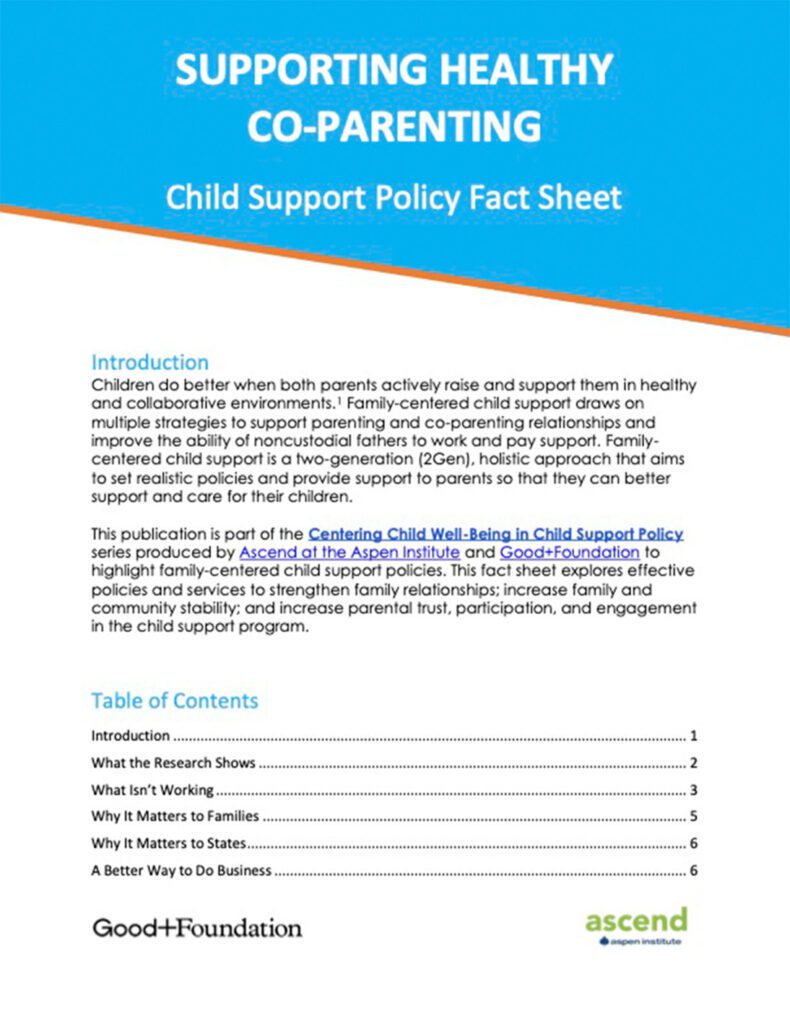
Children do better when both parents actively raise and support them in healthy and collaborative environments. Family-centered child support draws on multiple strategies to support parenting and co-parenting relationships and improve the ability of noncustodial fathers to work and pay support. Family-centered child support is a two-generation (2Gen), holistic approach that aims to set realistic policies and provide support to parents so that they can better support and care for their children.
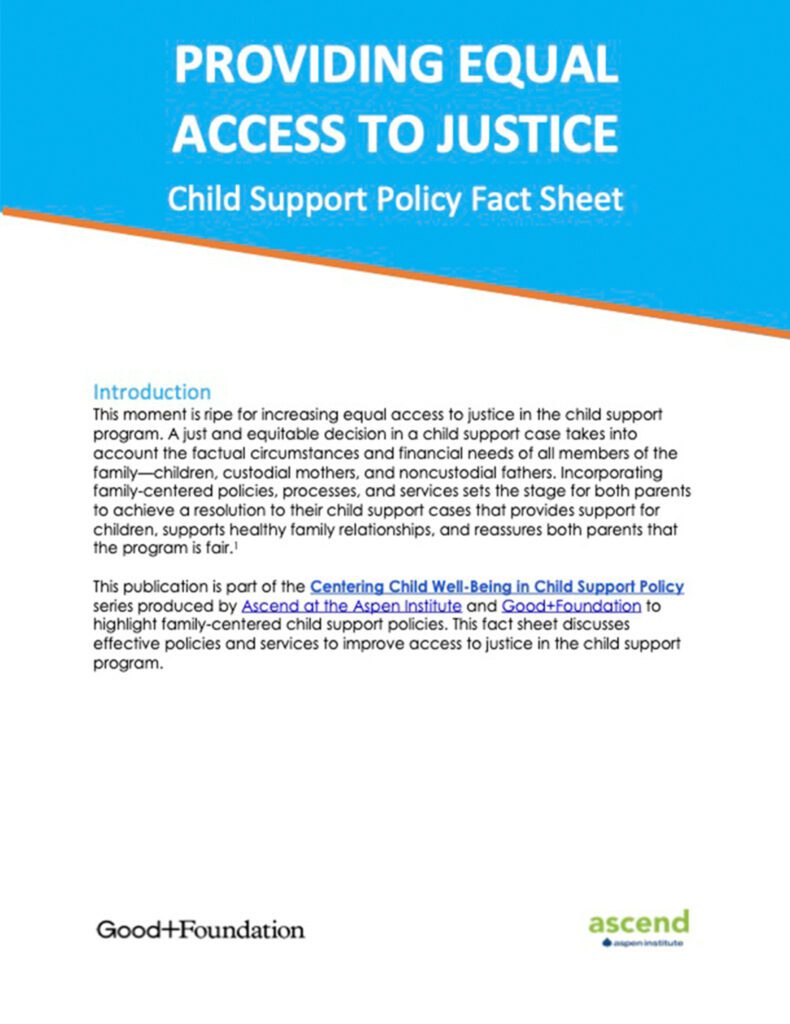
This moment is ripe for increasing equal access to justice in the child support program. A just and equitable decision in a child support case takes into account the factual circumstances and financial needs of all members of the family—children, custodial mothers, and noncustodial fathers. Incorporating family-centered policies, processes, and services sets the stage for both parents to achieve a resolution to their child support cases that provides support for children, supports healthy family relationships, and reassures both parents that the program is fair.
Share these Resources

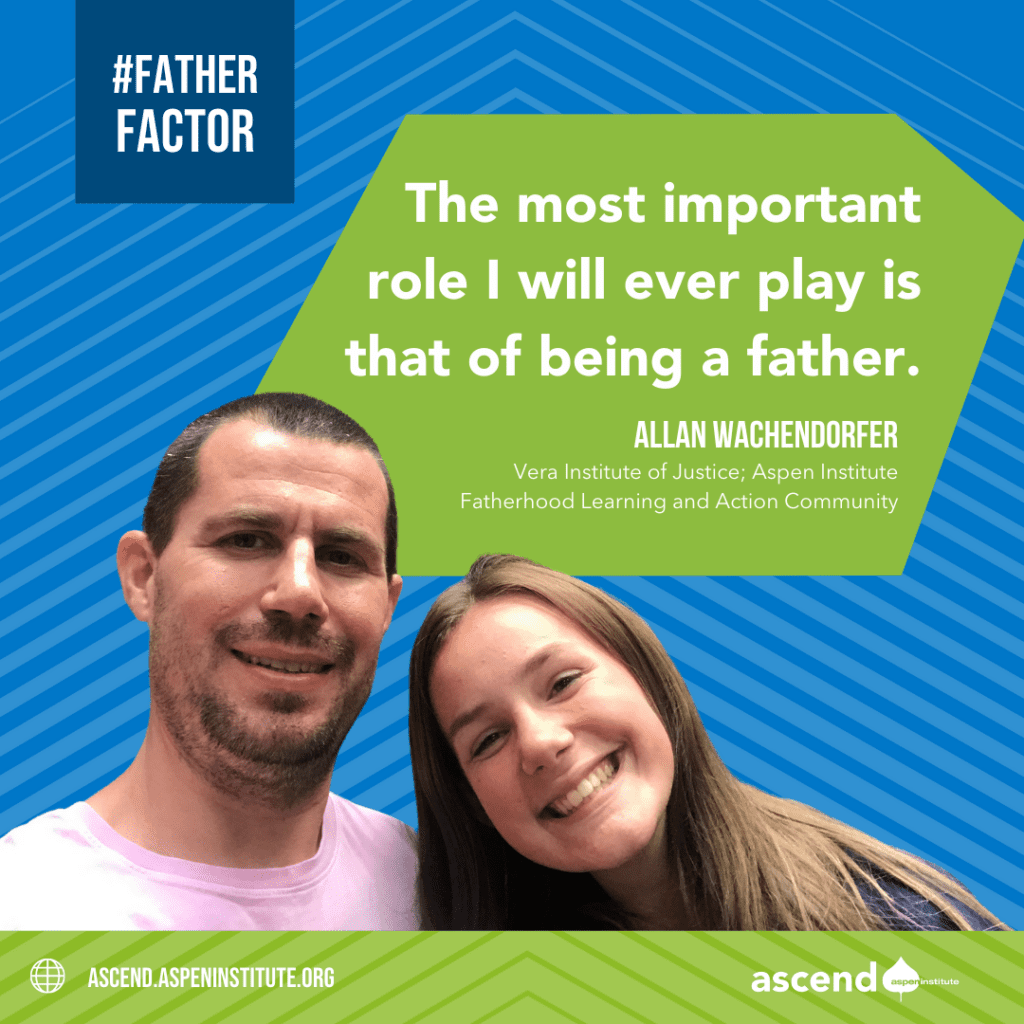



Related Posts



- Reggie Bicha
- UTEC
- Agape Child and Family Services
- Wendy Ellis
- Raquel Hatter
- Joseph Jones
- Center for Urban Families
- Lori Severens

